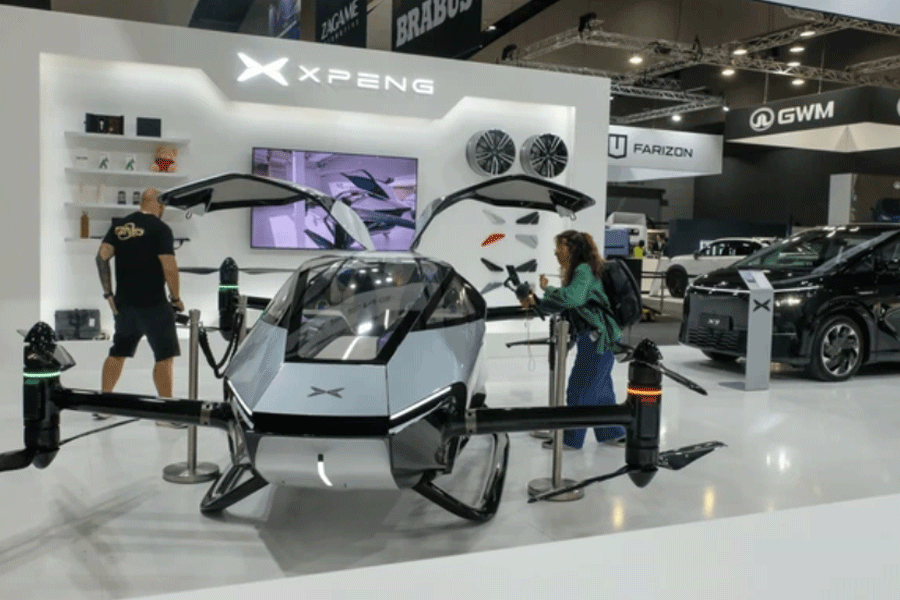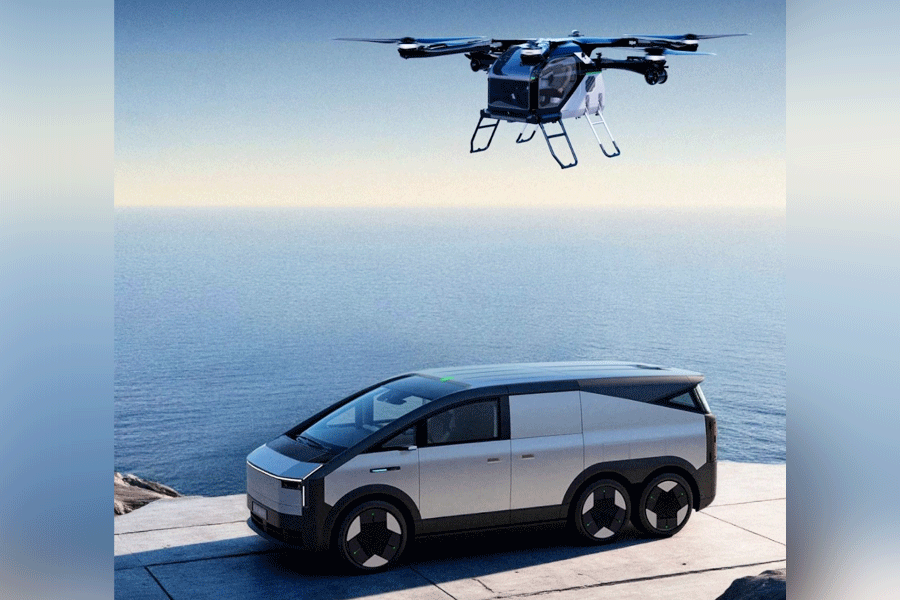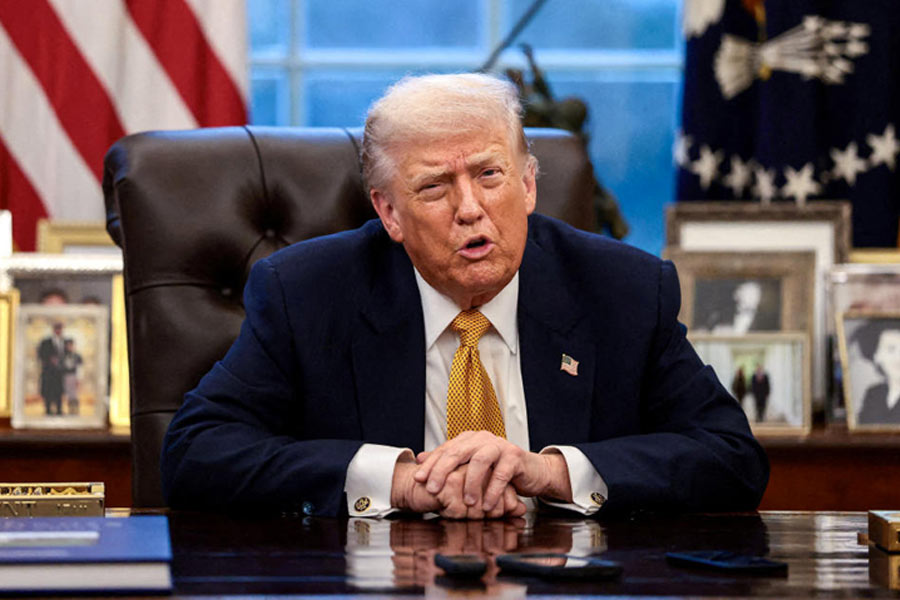A Chinese firm this week began trial production of flying cars stated to be the next-generation in the world of transportation, ahead of US firm Tesla and others plans to launch the same shortly.
Xpeng Aeroht, the flying car affiliate of Chinese electric vehicle maker Xpeng on Monday began trial production at the world’s first intelligent factory for mass-produced flying cars --- a milestone in the commercialisation of next-generation transport.
Located in the Huangpu district of Guangzhou, the capital of south China’s Guangdong Province, the 120,000-square-metre plant has already rolled out the first detachable electric aircraft of its modular flying car, the “Land Aircraft Carrier”, the state-run Xinhua news agency reported.
The facility is designed to have an annual production capacity of 10,000 detachable aircraft modules, with an initial capacity of 5,000 units.
It has the largest production capacity of any factory of its kind, and will be capable of assembling one aircraft every 30 minutes once fully operational, the report said.
Xpeng announced the plan ahead of Tesla launching its flying car version.
Meanwhile, Tesla CEO Elon Musk told Fox News that his firm is getting closer to building a flying car.
"We're getting close to demonstrating the prototype," Musk was quoted as saying on Monday.
"And I think this will be … one thing I can guarantee is that this product demo will be unforgettable." "Whether it's good or bad, it will be unforgettable," Musk said.
Asked for specifics about the technology, like whether the automobile would have a "retractable wing", Musk just said the unveiling "has a shot at being the most memorable product unveil ever".
Musk said that the car would "hopefully" be unveiled "in a couple months." Another US firm Alef Aeronautics has recently demonstrated its flying car test runs with an announcement that its commercial production will begin soon.
Alef Aeronautics CEO Jim Dukhovny in an interview to Fox news said his firm has already secured over a billion USD pre-booking orders.
It will be driver-driven cars with light plane flying licences besides driving license.
Xpeng said it has secured orders for nearly 5,000 flying cars since its product release, and mass production and delivery are scheduled in 2026.
The flying car comprises a six-wheel ground vehicle, referred to as the “mothership”, and a detachable electric vertical take-off and landing (eVTOL) aircraft.
Xepeng’s eVTOL cars offer both automatic and manual flight modes. Its automatic mode enables smart route planning, as well as one-touch take-off and landing.
At about 5.5 metres in length, the vehicle can be driven on public roads with a standard licence and parked in regular spaces, the Xinhua report said.
According to data from China Passenger Car Association (CPCA), 50-odd EV builders of China exported a total of 2.01 million pure electric and plug-in hybrid vehicles overseas in the first eight months of the year, up 51 per cent from the same period a year earlier.
But the Chinese EV makers are facing push back abroad as EU has imposed a 27 per cent tariff on Chinese EVs to limit their sales in the bloc.
Domestically also, the Chinese EV makers are victims of discount wars and chronic overcapacity on the mainland, global consultancy AlixPartners in a report published in August.
Only half of China’s electric vehicle production capacity – about 20 million units – was used last year, according to Goldman Sachs. Among the country’s EV builders, only four – BYD, Li Auto, Seres and Leapmotor – are profitable, according to a recent report by the Hong Kong-based South China Morning Post.
Except for the headline, this story has not been edited by The Telegraph Online staff and has been published from a syndicated feed.











